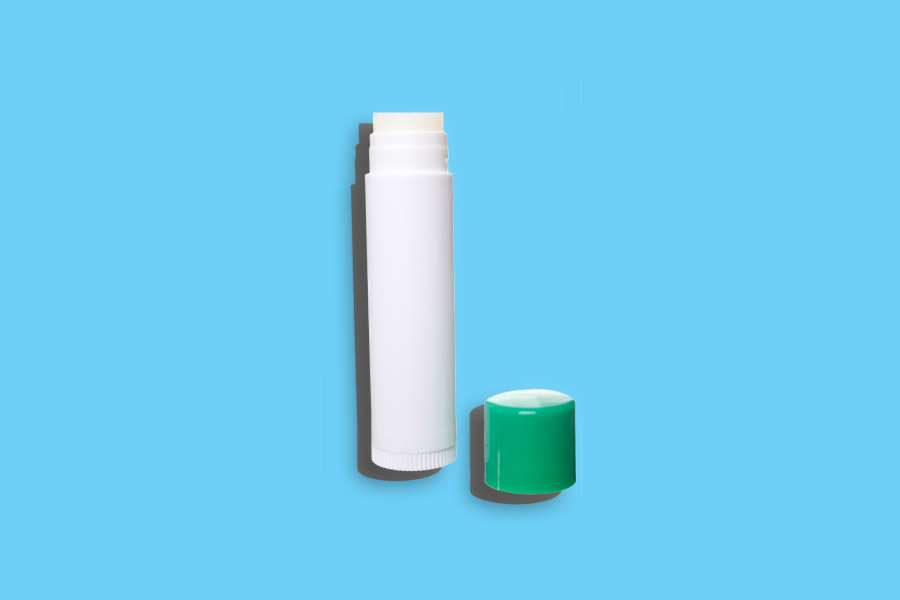
The Internet is rife with conspiracy theories about lip balm. Some claim it’s addictive, while others argue popular products are loaded with ingredients that actually promote chapped lips—therefore ensuring you buy more balm.
Experts say many of those rumors—many, but not all—are either exaggerated or silly. But to understand lip balm’s pros and cons, it helps to recognize your lips’ unique characteristics.
As far as skin goes, your lips are oddballs. Unlike your arms, legs and torso, your lips are covered in “transitional skin” that lacks a stratum corneum: a tough outer layer, explains Dr. Zoe Draelos, a North Carolina-based dermatologist and researcher. “This is why your lips look red compared to the rest of your face,” she says.
Draelos says lip skin is similar to the inner lining of your mouth and nose. But unlike those places, your lips don’t hang out in a warm, moist, protected environment. So when the weather turns cold and dry, your lips has a hard time coping.
Making matters worse, your saliva contains enzymes designed to break down fats and proteins—basically, the stuff your lips are made of, says Dr. Adam Friedman, associate professor of dermatology at the George Washington University School of Medicine and Health Sciences. So if you lick dry lips to moisten them, that coating of saliva can exacerbate the weather-related damage. Likewise, licking your lips before applying balm can lock in saliva, leading to skin breakdown, he says.
Another reason balm gets a bad rap is that most people misunderstand how these products work. While some have mild moisturizing properties, lip balms aren’t meant to absorb into your skin like a body lotion. Rather, they’re designed to sit on top of your lips, forming an impermanent shield that prevents dry air from drawing out moisture, Draelos explains. Once eating or talking or lip-smacking rubs away your balm, your lips are going to dry out again quickly unless the humidity in your environment has changed, she says.
Could you argue this makes lip balms addictive? “Not in the sense that the more you use, the more you have to use,” Draelos says. While the comfort lip balm provides might encourage you to keep using it, that’s kind of like saying the warmth a winter jacket provides is addictive because you want to keep wearing it whenever you go outside. (At the same time, some experts still insist that constantly applying some types of lip balms can make skin “lazy” and less likely to be able to stay in balance without interference.)
That said, not all balms are benign. “Some contain menthol, which can be soothing and cooling, but can also be irritating,” Draelos says. “I wouldn’t recommend using these products continuously.”
Other lip products contain “exfoliants” or ingredients that can inflame your lips, says Lauren Ploch, MD, a Georgia-based dermatologist. Phenol and carmol are two ingredients to watch out for, she says, as are “plumping” ingredients. “These are mild irritants that can increase blood flow and cause a slight swelling—almost like a mild fat lip,” Friedman explains. That irritated aesthetic can be a draw for consumers. “People like the tingle, and they like that it makes their lips look fuller,” he says.
According to the Environmental Working Group’s Skin Deep database of cosmetic chemicals, some lip balms also contain parabens, phthalates and other potentially harmful ingredients.
Finally, it’s possible that one of the ingredients in your balm could cause an allergic reaction, says Dr. Roopal Kundu, an associate professor of dermatology at Northwestern University’s Feinberg School of Medicine. But this is true of pretty much anything you put on or in your body. “Everyone’s allergic to something,” Friedman says. “Considering how many people use lip balm, it’s not surprising that some people would experience a reaction.”
So what’s your best solution for chapped lips? Exfoliate your lips gently in the shower with a wash cloth, and skip all the fancy or flavored balms in favor of one containing wax, some oil—and little else. “The fewer ingredients, the better,” Kundu says.
More Must-Reads from TIME
- Donald Trump Is TIME's 2024 Person of the Year
- TIME’s Top 10 Photos of 2024
- Why Gen Z Is Drinking Less
- The Best Movies About Cooking
- Why Is Anxiety Worse at Night?
- A Head-to-Toe Guide to Treating Dry Skin
- Why Street Cats Are Taking Over Urban Neighborhoods
- Column: Jimmy Carter’s Global Legacy Was Moral Clarity
Contact us at letters@time.com